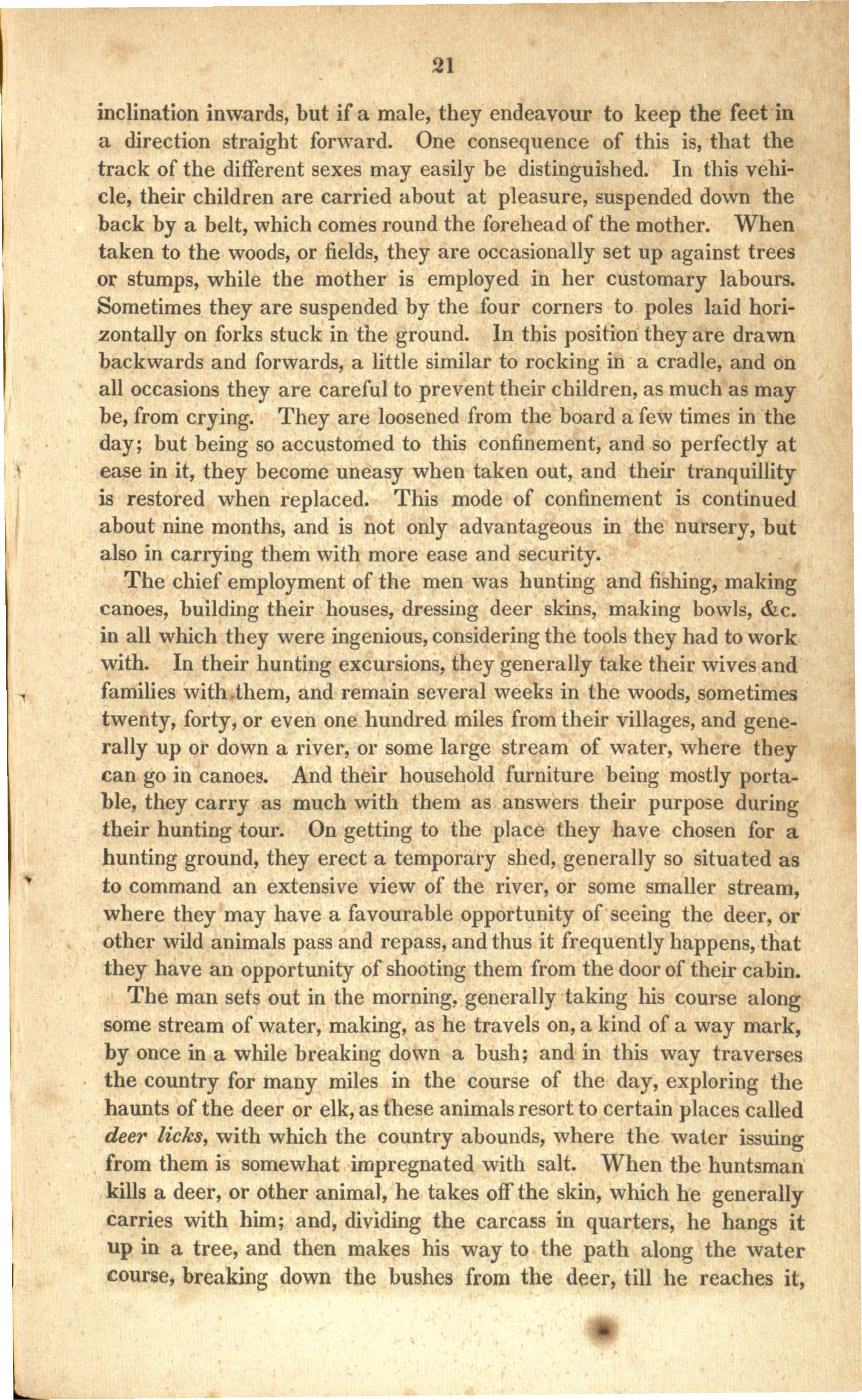inclination inwards, but if a male, they
endeavour to keep the feet in
a direction straight forward. One consequence
of this is, that the
track of the different sexes may easily be
distinguished. In this vehi-
cle, their children are carried about at
pleasure, suspended down the
back by a belt, which comes round the forehead
of the mother. When
taken to the woods, or fields, they are occasionally
set up against trees
or stumps, while the mother is employed in her
customary labours.
Sometimes they are suspended by the four corners to
poles laid hori-
zontally on forks stuck in the ground. In this position
they are drawn
backwards and forward, a little similar to rocking in a
cradle, and on
all occasions they are careful to prevent their children, as
much as may
be, from crying. They are loosened from the board a few times
in the
day; but being so accustomed to this confinement, and so perfectly
at
ease in it, they become uneasy when taken out, and their
tranquillity
is restored when replaced. This mode of confinement is
continued
about nine months, and is not only advantageous in the nursery,
but
also in carrying them with more ease and security.
The chief employment of the men was hunting and fishing, making
canoes,
building their houses, dressing deer skin, making bowl, &c.
in all
which they were ingenious, considering the tools they had to work
with. In
their hunting excursions, they generally take their wives and
families with
them, and remain several weeks in the woods, sometimes
twenty, forty, or
even one hundred miles from their villages, and gene-
rally up or down a
river, or some large stream of water, where they
can go in canoes. And
their household furniture being mostly porta-
ble, they carry as much with
them as answers their purpose during
their hunting tour. On getting to the
place they have chosen for a
hunting ground, they erect a temporary shed,
generally so situated as
to command an extensive view of the river, or some
smaller stream,
where they may have a favourable opportunity of seeing the
deer, or
other wild animals pass and repass, and thus it frequently
happens, that
they have an opportunity of shooting them from the door of
their cabin.
The man sets out in the morning, generally taking his course along
some
stream of water, making, as he travels on, a kind of a way mark,
by once in
a while breaking down a bush; and in this way traverses
the country for
many miles in the course of the day, exploring the
haunts of the deer or
elk, as these animals resort to certain places called
deer licks, with
which the country abounds, where the water issuing
from them is somewhat
impregnated with salt. When the huntsman
kills a deer, or other animal, he
takes off the skin, which he generally
carries with him; and, dividing the
carcass in quarters, he hangs it
up in a tree, and then makes his way to
the path along the water
course, breaking down the bushes from the deer,
till he reaches it,

